Partial dismantling of subsidies, move towards a more transparent policy on natural resources and efforts to make India more inviting for foreign investors are some of Modi government's big achievements.
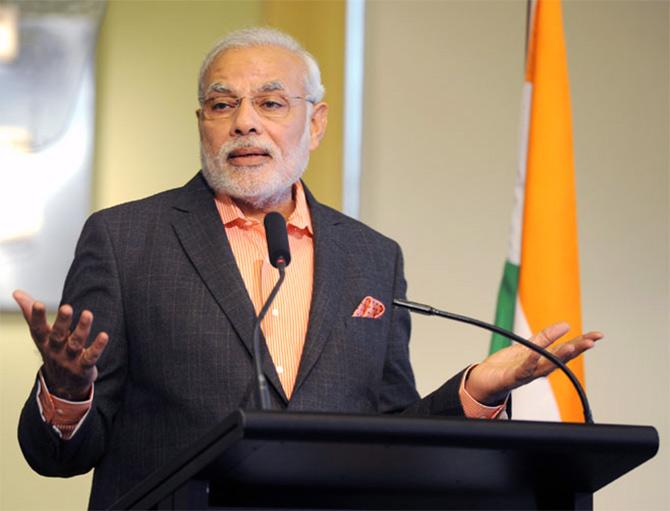
The Narendra Modi-led National Democratic Alliance government is poised to complete six months. It is an alliance because it chooses to be one and has no coalition compulsions to speak of.
In part because the global and domestic economic environment has been extraordinarily supportive – low commodity prices and; lowest levels of inflation in nine years and record food stocks – the government in India has faced fewer challenges. But has it maximised its opportunities?
Is it spending too much time congratulating itself and its Prime Minister and not thinking enough about how to restructure policy? Has it been weighed down by internal doubts and differences on future direction?
It has had many achievements as well: a partial dismantling of subsidies; movement towards a more transparent policy on natural resources; and moves to make India more inviting for foreign investors.
In its foreign policy, the substance may be the continuation of past policy but the style has changed dramatically. But the government continues to struggle with collective inexperience which has tended to centralise decision-making, curbing individual initiative.
The BJP fancies itself as a bold, swashbuckling government: but in some of the decisions it has taken, it has been inexplicably tentative.
Many of the initiatives it had announced: more power to the states; the revamping of the Planning Commission are yet to get off the ground.
Business Standard examines and evaluates six months of policy, decision-making, political management and the style of the new government.
It trains the spotlight on the individuals who make the government run and identifies the six biggest ideas, achievements, strengths and weaknesses so far.
The six big ideas floated by the Narendra Modi government in his six months in office:
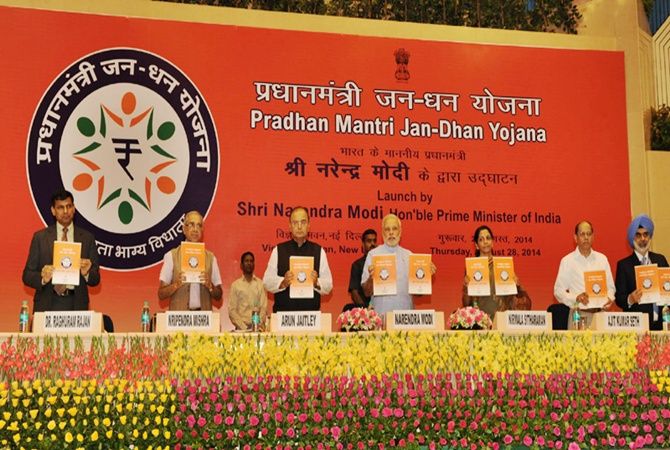
Jan Dhan Yojana
With a substantial section of society still outside the ambit of the formal financial system, the recent initiative which aims to bring the excluded into the banking system over the next few years is a laudable one.
But legitimate concerns remain. For one, access to banking services may not translate to usage as the poor may simply opt against engaging with the system.
Concerns also exist about the financial viability of maintaining such accounts. But if coverage is extended, especially to the rural poor, then in conjunction with the Aadhaar platform, it could facilitate a shift towards cash transfers.
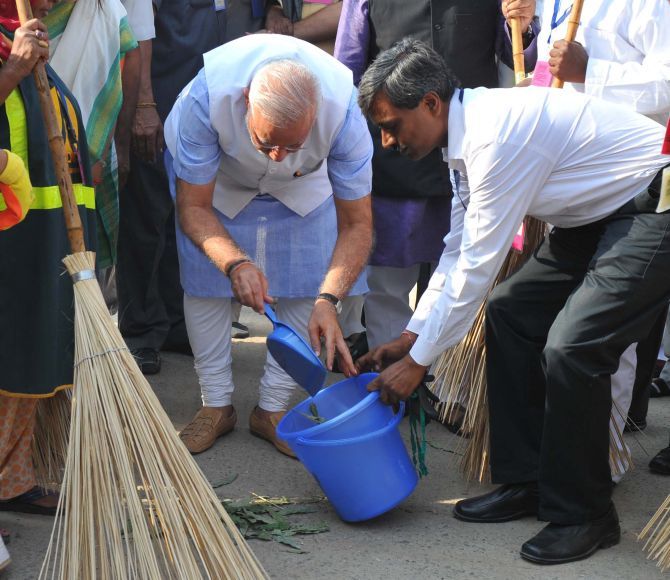
Swachh Bharat
A brilliant event manager,” L K Advani said of former protégé Narendra Modi in April. On October 2, Modi showed how he is arguably the most-skilled mass communicator among Indian leaders.
He chose Mahatma Gandhi’s birth anniversary to pick up a broom and launch the Swachh Bharat Abhiyan. Few remembered how Swachh Bharat was in fact the repackaged Nirmal Bharat sanitation programmes launched by the Atal Bihari Vajpayee-led NDA government and Manmohan Singh-led UPA governments.
But Modi is the first PM to take up the cause of cleanliness with such conviction and vigour. He has attempted to make a mass movement out of an issue that affects not only people’s health but is also an attack on social ills like untouchability and manual scavenging.

Make in India
While successive governments have acknowledged the need to raise the share of manufacturing in GDP, there has been a mismatch between policies and the rhetoric.
The new government’s innovative Make in India campaign signals its commitment to transforming India into the manufacturing hub of the world.
The importance of manufacturing stems from the fact that the sector can serve as a source of employment for the bulk of unskilled and semi-skilled workers currently engaged in the agricultural sector.
But the success of this initiative depends on the degree to which the government can provide an enabling environment by improving the ease of doing business in India.

Death of the Planning Commission
The death of the Planning Commission, announced by Prime Minister Narendra Modi from the ramparts of Red Fort, is probably the biggest symbolic break from the Nehruvian socialist era.
Derided as a “parking lot” for political cronies and superannuated civil servants by Arun Shourie, the Commission was often accused of being insensitive to the problems of states.
While the relevance of the Commission in an increasingly market-oriented economy is debatable, whether the new organisation proposed in its place will be more in tune with realities or not remains to be seem.
To what extent it succeeds in making states “equal partners” in the decision-making process remains to be seen.
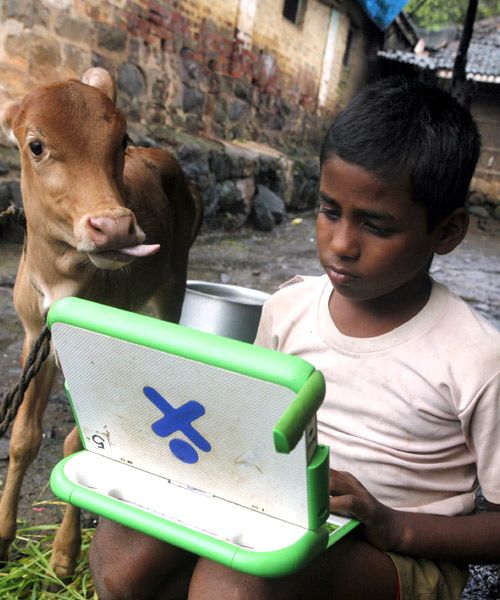
Digital India
In his first Independence Day speech, the prime minister captivated the youth by talking of his dream of a Digital India by 2019.
Whether its e-governance, broadband for all, IT-enabled education or telemedicine, the Digital India plan is meant to cover it all.
To begin with, the government is working on a Rs 500-crore (Rs 5 billion) plan, and has already initiated biometric attendance in government offices. Delivery of government services through a unified portal has been planned under it.
Recently, Aadhaar-based digital life certificates called Jeevan Pramaan were launched for pensioners.
The goal is to simplify the process of pension payments. India must first get a seamless broadband and wi-fi connectivity up to the last mile, for the plan to actually work.
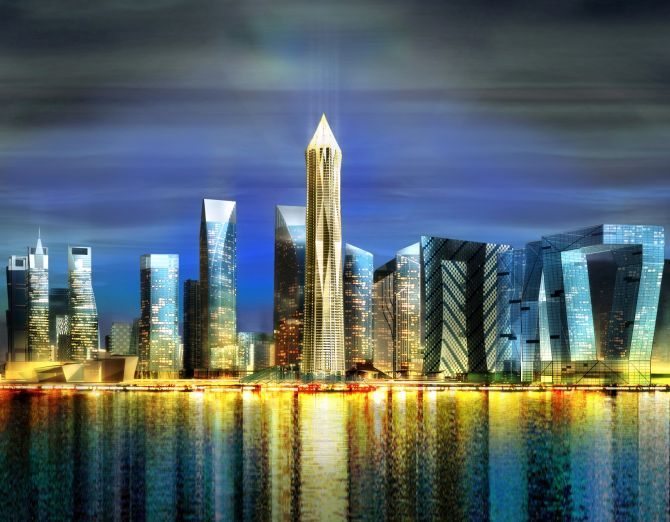 Smart Cities
Smart Cities
One of the ideas from the BJP poll manifesto, this saw early action. In its first Budget in July, this government allocated Rs 7,060 crore (Rs 70.60 billion) for smart cities, though the initial estimate for the project was Rs 35,000 crore per annum.
The plan is to build 100 smart cities in India over a period of time. Smart cities are broadly defined as urban spaces that are technologically integrated, well-planned and environment-friendly.
It’s a long-term project and could well be spread over 10 years or more, officials say. A flexible PPP (public-private partnership) model is being worked out; many countries including the US, Japan and Singapore, have committed to play a role.
Critics say power outages, poor infrastructure and dearth of clean drinking water may play spoilsport.











 © 2025
© 2025